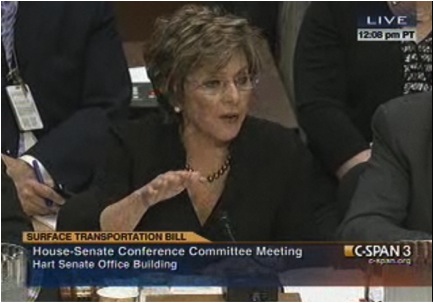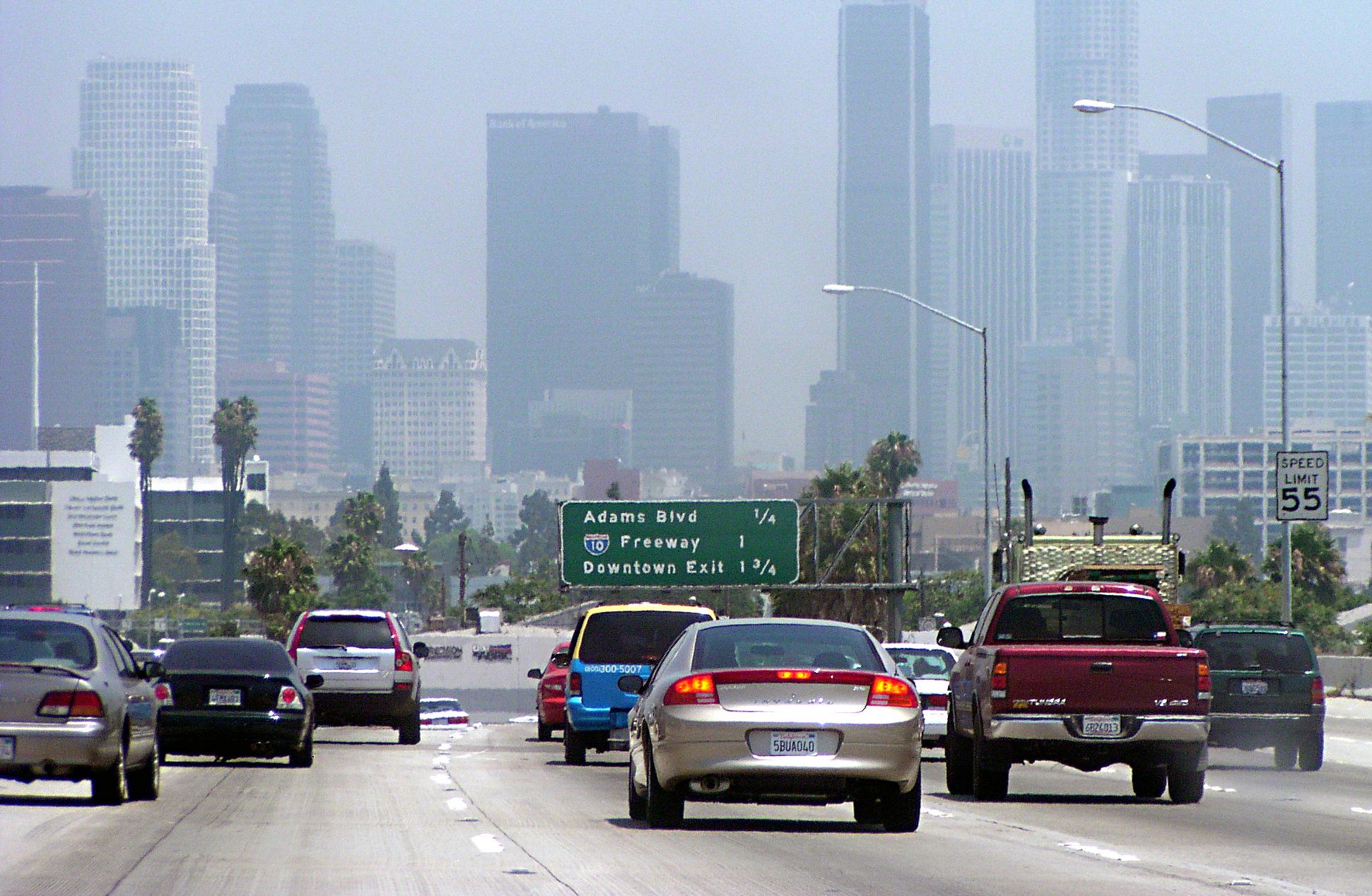For the past six months, I have had the enviable task (seriously) of tracing the path of federal transportation legislation through Congress. And look how far we've come! When I first took the editor's chair in January, transportation funds were drying up, the deadline for a new bill was fast approaching, and none of the news made Congress look good. Today, essentially, nothing has changed, except everything is somehow even worse.
The latest update is that with only 11 calendar days and six legislative days in which to get a bill to the President, the 47 House and Senate negotiators seem as far as ever from reaching a deal. If they can't, then transportation policy will expire, the gas tax will stop being collected, the Highway Trust Fund will run out of money... Stop me if you've heard this one before.
In the past, deadlocked conferees could simply get their bosses to work out a deal, as they will try to do today, but even that seems unlikely according to The Hill:
“I think the bill’s dead,” a transportation industry source said to The Hill on Friday. “I don’t think they can fix what they have in front of them. Kicking it up to the leadership probably gives it a chance…but every time they get to the five-yard line, they move the goal posts back.”
In fact, some reports have already emerged that this afternoon's negotiations aren't about producing a bill but about determining the length of the next extension. As Todd Zwillich at Transportation Nation reports:
“Zero,” said Rep. Steve LaTourette (R-OH), when asked about the chances of last-ditch conference negotiations yielding an agreement before next week. Senate Majority Leader Harry Reid (D-Nev.) is set to meet with House Speaker John Boehner (R-Ohio) at 4 PM today. Chief negotiators Sen Barbara Boxer (D-Calif.) and Rep. John Mica (R-Fla.) are also scheduled to be in on the meeting. “The purpose is to come up with a clean extension” of six months, LaTourette said in an interview.
Other members of Congress seem to be putting on slightly braver faces. Ranking House T&I Committee Democrat Nick Rahall still believes there's a 51 percent chance of a bill passing, according to Zwillich, and Minnesota Democrat Tim Walz has introduced a non-binding motion to instruct the conferees to agree on a bill by the end of the week [PDF]. Though the way things are going, he might as well be moving to tell the House to stop hitting itself.
If negotiations have indeed failed, the House has already passed an extension through September 30 which could be taken up by the Senate. However, it contains a number of things the Senate would be loath to pass, like aggressive environmental "streamlining," and at least one thing -- the Keystone XL Pipeline -- that has drawn a presidential veto threat. And remember that Congress is gone for the whole month of August, so a three-month extension is basically just a one-month extension likely to end in another extension.
It's easy to forget how we got here in the first place, and that the last six months represent only the latest chapter (and likely not the last) of a reauthorization saga that began in 2009. Back then, the Democrats controlled both houses of Congress and the presidency, but Obama pursued an ambitious legislative agenda -- the Affordable Care Act and the Recovery Act -- that pushed long-term transportation bills by the wayside. Only nobody expected it to be brushed aside nine times, with a tenth around the corner.
Along the way, the federal gas tax also expired, and got re-extended along with the transportation spending bills. Suddenly, spending and revenue had to be dealt with together, or not at all. So far, we've mostly gotten steaming piles of "not at all."
There wasn't any movement on a new bill until about a year ago, when Barbara Boxer and the Senate Environment & Public Works Committee first drew up the Making American Progress for the 21st Century Act, affectionately called "MAP-21" and functionally called "the Senate transportation bill." A far cry from then-recently-unseated Rep. James Oberstar's six-year, $500 billion proposal, EPW's bill was a two-year, $108 billion measure that tried to make some adjustments -- consolidating programs and trimming bureaucracy, for example -- so that later bills could focus on raising revenue.
But the House countered with a five-year, $260 billion gift card to big oil, H.R. 7. It proposed casting aside the 30-year precedent of giving a slice of gas tax revenue to transit, while also cutting healthy, popular programs that make streets work better for walking and biking, like Safe Routes to School, Recreational Trails, and Transportation Enhancements.
The Senate passed their bill 75-22. The House passed zilch.
Finally, in April, the House scraped together the aforementioned "dirty" extension in order to start the conference committee process. But even with Boxer putting on her most optimistic face, there has been alarmingly little progress. Even when Senate Democrats show a willingness to compromise, and the House Republicans show a willingness to tolerate the Senate's end-run around revenue shortfalls, something -- namely, John Boehner's political need to appease the Tea Party faction of his caucus -- has kept the bill from getting passed.
That something is now sitting down in a room with Boxer, Reid, and Mica, trying to work out an 11th hour deal for the umpteenth time.






